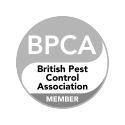Shielding your business from pest birds
Offering unrivalled experience in bird proofing buildings, specialising in protecting your business against pest birds like pigeons, gulls, and starlings, ensuring a safer and more comfortable environment for your operations.
Proofing Methods That Work
At Contego we've got a range or the latest bird proofing methods, designed to protect your space from the effects of pest birds, while having minimal visual impacts on your building.
BIRD FREE GUARANTEE
A Proven Approach To Bird Control
We understand that every industry and site presents unique challenges when it comes to bird control, which is why we tailor our bird management strategies to address the specific needs and requirements of our clients.

In need of an effective bird proofing solution?
Are you looking for the perfect bird proofing solution to coexist with your facility management strategy? Give us a call and we'll get started on implementing our latest techniques onto your site.
Where Bird Proofing Works Seamlessly
Although bird proofing is a diverse solution that can be applied to many outdoor scenarios, here's where might benefit from our bird proofing solutions the most:
Aerodrome Standards & Regulations
Is your Business Within 13km of an airport?
The International Civil Aviation Organization (ICAO) mandates a 13km (8-mile) radius for sites to undergo risk assessments to assess their impact on heightened bird strike risks. If your location falls within this designated radius, it is imperative to proactively implement preventive measures to deter pest birds and mitigate potential risks to aviation safety.

ALREADY GOT BIRD PROBLEMS?
Combine Bird Proofing with Falconry Bird Control
Need an effective bird control method to combat ongoing pest bird problems? Falconry provides a natural and humane bird deterrence system - using fear tactics to scare off pest birds and deter them from roosting.

Act now Before it's too late
Take action now before birds take over. Birds can cause serious damage to your property, from contaminated surfaces to structural wear and
tear. It's essential to act quickly to prevent costly repairs and ensure the health and safety of your environment.
Choose the path to protection
Don't wait around, take the proactive approach and protect your space before bird season arrives. Now is the time to get started. Give us a call today and receive your free quote in less than 24 hours!
how we differ from other
companies
In-house Service Delivery
We offer in-house service delivery nationally across the UK, with regional Technicians and Specialist Proofing Teams supported by regional Operations Managers overseen by our Operations Director and In-house Office teams.
Partnership Approach
Our partnership approach means we and work closely with you to understand your needs, providing full transparency and offering tailored solutions that not only address your current challenges, but prevent them recurring in the future.
Actionable Insights
Through our innovative Synergy Portal, we provide actionable insights that empower you with your real-time pest data and detailed reports, helping you make informed decisions for proactive pest management and long-term protection.
A track record in Bird Proofing Excellence
See how we've helped our diverse client-base be protected from pest birds.
Frequently Asked Questions
Need Gull Or Pigeon Proofing?
Don't wait around, bird season will soon be here and it brings with it a whole range of potentially serious problems from property damage to public health risk. Get in touch today for your bird proofing solution!
























